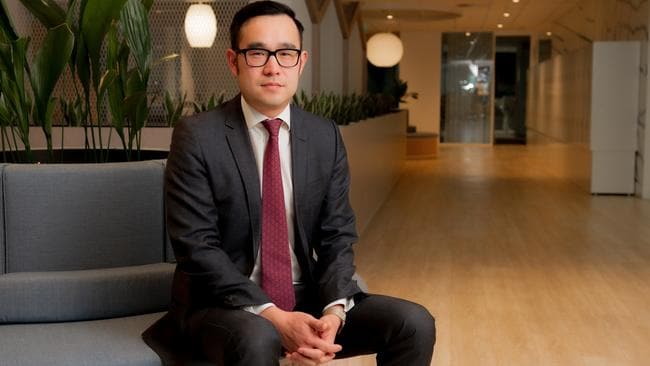
Tax time is here! And the Australian Taxation Office (ATO) is warning people against making unsubstantiated deductions.
This year the agency will have its eye on work-from-home expenses and rental property claims, and will also be chasing hidden income earned by gig economy workers.
Tax time spokesman assistant commissioner Tim Loh explained that for most of last year the ATO had to shift its focus towards delivering COVID-19 stimulus benefits such as JobKeeper, super early withdrawal and business cashflow boost.
While the ATO will continue to support taxpayers through the pandemic, he said the agency will also ramp up its work to address key risks to the tax and super system.
Here are the areas the ATO has set its sights on this tax time.
Work from home and work-related expense claims
Work-related expenses slightly dipped during COVID, but work from home expenses went up.
In 2019-20, about 8.5 million Australians claimed almost $19.4 billion in work-related expenses. This is down from $20.7 billion claimed by 8.9 million people in 2018-19.
Work from home expenses leaped by about 40 per cent during COVID-related lockdowns. More than 4.4 million individuals claimed a working from home expense in their 2019-20 return; compared to about 3.16 million in 2018-19.
The total claim for 2019-20 was $2.84 billion and the average claim was $642 (as of April 30, 2021). That figure is expected to rise again this financial year. “We do expect to jump in these claims,” Mr Loh said.
But he said the ATO would also expect certain deductions, such as travel and car expenses, laundering uniforms and business trips, would have reduced.
“That will go down quite significantly this year,” he said.
“The data from last year showed that the value of current travel expenses decreased by nearly 5.5 per cent.”
The ATO will be paying close attention to how people apportion items such as internet and telephone costs between private and business use, and expect people to keep good records of the number of hours worked at home.
Mr Loh said, for example, those working from home and watching Netflix in their time off cannot claim their full internet cost as a work-related expense.
The ATO has almost 40 occupation and industry guides outlining the work-related expenses people working in these occupations can and cannot claim deductions for.
Mr Loh said specialised workers can claim for tools they use in the workplace.
“Hairdressers can claim for the cost of tools and equipment they use for work, like scissors or other hair styling tools,” he said.
“Bike couriers may be able to claim the depreciation of their bicycle, but will need to calculate and only claim the work portion of the use of the bicycle.”
One million Australians used 80 cents per hour tax shortcut last year
In response to the expectation that work from home claims would rise due to pandemic lockdowns, last year the ATO introduced a new shortcut method.
This method allows people to claim 80 cents per hour for all their running expenses, rather than needing to calculate specific running costs.
But tax advisers have previously warned that, while the method makes things easier as the record-keeping is not as onerous, it could result in lower claims.
Mr Loh said the shortcut method was only available between March and June 2020 and about 1 million taxpayers claiming working from home expenses used the shortcut to calculate their costs. “Now this year, we think we expect that to be much higher, because more people know about it.”
Illegitimate claims on rental properties under the magnifying glass
Of almost 14.7 million people who filed tax returns in 2018-19, there were 2.24 million landlords and almost 59 per cent of them continued to lose money (excluding potential capital gains), on average declaring a net rental loss of $1,352.
But that loss shrank from $1,623 the previous year, when 60 percent of landlords had greater expenses than rental income.
Mr Loh said some examples of problematic claims include people refinancing and doing kitchen renovation in the home they are living in, but claiming the mortgage interest bill on their rental property.
He also said the agency was still seeing people claiming travel that was of a personal nature and not directly related to work engaged on the rental property.
Gig economy workers: odd jobs are not exent
The ATO requests data from digital platforms such as Uber, Uber Eats, Deliveroo, Airbnb and Airtasker as a way to identify people who earn income through the gig economy.
Mr Loh said those providing services through a digital platform for a fee need to report this income in their tax return.
“You can claim deductions for expenses directly related to earning this income and you’ll need to keep records to support these claims,” he said.
“One particular expense you may be able to claim a deduction for if you have more than one job is for travel between workplaces on the same day, provided one of those workplaces is not your home.
“You’ve just got to make sure you’ve got the records to support those claims.”
He also urged to tax agents completing their tax returns for their clients to ask their clients if they have made income from delivering gig economy services or through one-off side jobs.
CPA Australia’s senior manager tax policy, Elinor Kasapidis, says more people turned to the gig economy to make ends meet during COVID-19 and urged people to declare that income.
“The ATO is cracking down on the cash economy,” she said.
“The consequences of not declaring cash income from the gig economy may include interest on your tax bill and criminal and administrative penalties.”
She also warned contractors who received JobKeeper payments or other business grants to record these as business income in their tax return.
“These are assessable and you may need to pay tax on them,” she said.
Source: abc.net.au
If you need help this tax time season, give us a call
123-456-7890
Latest News Articles
Back to Latest News
End-of-Year Money Checklist: 10 Things To Do Before NYE

Redundancies in Australia Rising Quietly in White-Collar Sectors


